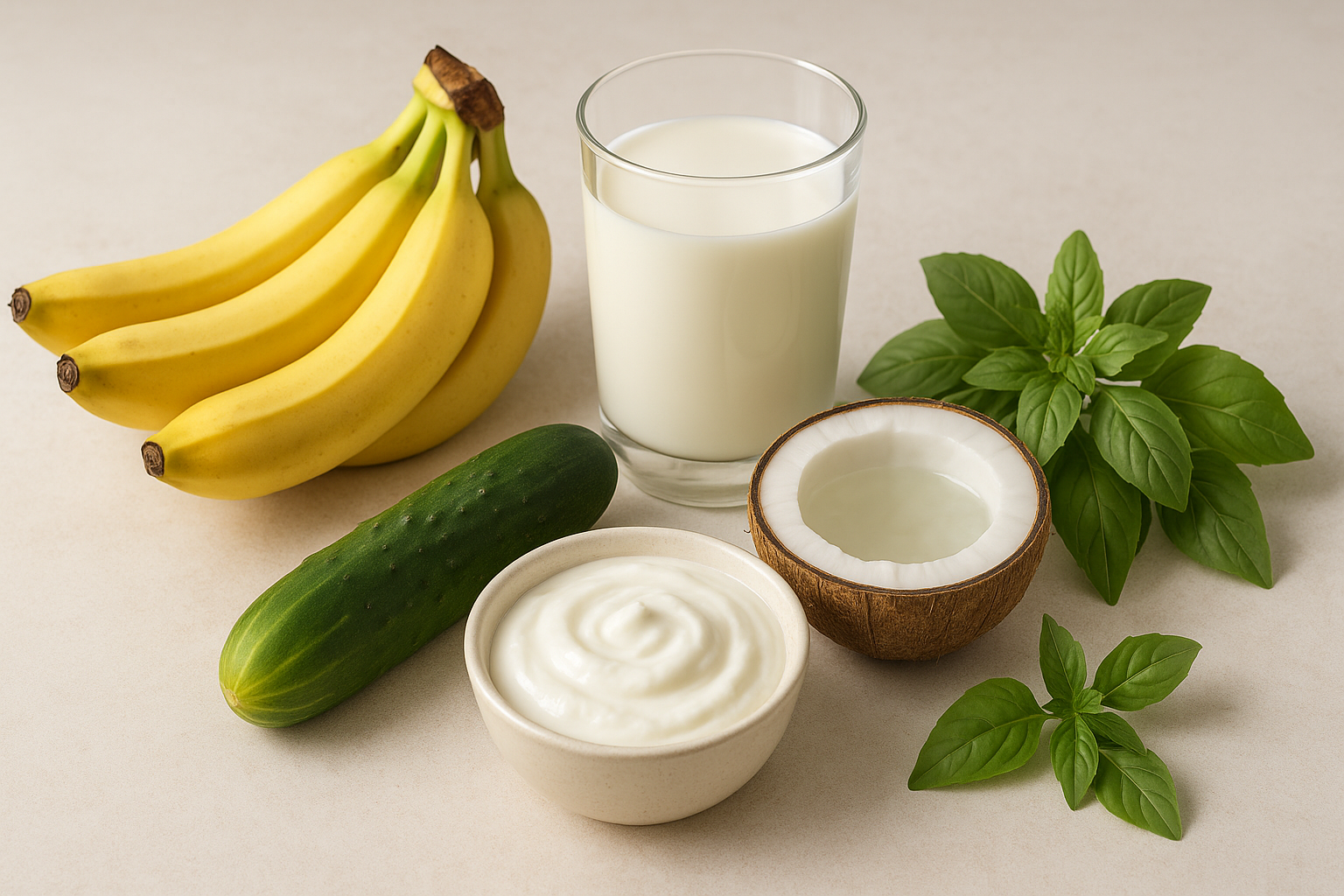If you often feel bloated, sluggish, or uncomfortable after meals, you are not alone. Millions of people deal with digestive issues that disrupt their daily routine. The good news? There are simple, natural ways to ease digestion and make your stomach feel better without relying entirely on harsh medications or restrictive diets. In this blog, we will explore how to improve digestion naturally and comfortably.
Why Good Digestion Matters?
Digestion is more than just breaking down food. It affects energy levels, nutrient absorption, immune health, and even mood. Poor digestion can lead to gas, bloating, constipation, acid reflux, and fatigue. Improving your digestion naturally helps your body perform better in every aspect of life. A strong digestive system means you can enjoy your favorite meals without fear of discomfort or pain.
Eat Mindfully and Slowly
One of the most overlooked ways to improve digestion is eating slowly and mindfully. Taking the time to chew your food properly and eating without distractions allows your body to get ready for digestion. It helps to handle the food more effectively.
Tips:
- Spend a minimum of 20 minutes eating your meal.
- Chew each bite thoroughly.
- Avoid screens or stressful conversations while eating.
- Sit upright while eating and remain seated for 10–15 minutes afterward.
Stay Hydrated
Water plays a critical role in digestion. It helps dissolve nutrients, transport them, and move food through the intestines. Not drinking enough water (dehydration) can cause constipation and slow down bowel activity..
How to stay hydrated:
- Drink 6 to 8 glasses of water daily for good gut health.
- Avoid sugary sodas and too much caffeine.
- By adding slices of lemon, fresh mint, or cucumber get a bit of flavor in water.
- Sipping lukewarm water ahead of meals can help ready your stomach for digestion
Eat Fiber-Rich Foods
Dietary fiber helps food move smoothly through your digestive tract. It helps avoid constipation and promotes the growth of beneficial gut bacteria.
High-fiber foods to include:
- Fruits like apples, pears, and berries
- Vegetables like spinach, carrots, and broccoli
- Whole grains like oats, brown rice, and quinoa
- Legumes such as lentils and chickpeas
When adding fiber to your diet, do so slowly to avoid discomfort like gas and bloating. Drink enough water to help it work effectively.
Add Natural Digestive Aids
Certain foods and herbs are known to support better digestion.
Helpful natural options:
- Ginger: Calms the stomach and reduces nausea
- Peppermint: Soothes the gut and eases cramping
- Fennel seeds: Reduce gas and bloating
- Apple cider vinegar: Can stimulate stomach acid when taken before meals
Try incorporating these into your meals or having them as teas.
Avoid Overeating
Large meals can overwhelm your stomach, causing indigestion and reflux. Eating smaller, balanced meals throughout the day keeps your system running smoothly.
Helpful tips:
- Eat 4-5 smaller meals instead of 2-3 heavy ones
- Stop eating when you’re about 80% full
- Use smaller plates to control portions
- Avoid lying down right after meals
Manage Stress Effectively
Your gut and brain are closely connected. Stress can negatively impact digestion by altering gut motility and increasing acid production. Some stress management techniques are:
- Deep breathing or meditation
- Gentle exercises like yoga
- Spending time in nature
- Adequate sleep
- Journaling or mindfulness practices
Taking care of your mental health improves your digestive health, too.
Regular Physical Activity
Exercise helps food move through your digestive tract and reduces bloating and constipation.
Digestive-friendly workouts:
- Walking after meals
- Yoga poses that support gut function (like Child’s Pose or Seated Twist)
- Light stretching or low-impact cardio
- Simple household chores that involve movement
Note: Even a 15-minute walk can do wonders.
Limit Trigger Foods
Certain food items can trigger heartburn, irritate your stomach, and cause discomfort. Everyone is different, but common culprits include:
- Spicy or greasy foods
- Carbonated beverages
- Excess caffeine or alcohol
- Highly processed snacks
- Artificial sweeteners
Keep a food diary to identify what affects you the most.
Support Your Gut with Probiotics
Probiotics are beneficial bacteria that help keep your digestive system balanced. You can get them through supplements or natural foods.
Probiotic-rich options:
- Yogurt with live cultures
- Kefir
- Sauerkraut
- Kimchi
- Miso
- Tempeh
They may reduce bloating, gas, and irregular bowel movements. Pair them with prebiotic foods like garlic, onions, and bananas.
Use Antacids for Quick Relief When Needed
Sometimes, despite your best efforts, indigestion or heartburn strikes. When that happens, it’s okay to turn to an over-the-counter solution like Gaviscon Oral Suspension Antacid for quick relief.
Gaviscon Antacid: Fast and Soothing Relief
Gaviscon creates a protective barrier on top of your stomach contents, preventing acid from rising into the esophagus. This barrier reduces heartburn and eases discomfort, especially after meals. It’s especially helpful when occasional indigestion strikes due to spicy or fatty meals.
Why choose Gaviscon?
- Forms a fast-acting protective layer
- Soothes burning sensation and discomfort
- Ideal after spicy, acidic, or heavy meals
- Comes in liquid and tablet form
- Suitable for on-the-go relief
Quick Daily Routine for Better Gut Health
Consistency is key when it comes to gut health. Here’s a simple daily routine that supports your digestive system naturally:
| Morning: | Drink a glass of warm water with lemonDo 5–10 minutes of light stretching or yogaEat a fiber-rich breakfast (e.g., oatmeal with fruits) |
| Midday: | Stay hydrated with water or herbal teaTake a short walk after lunchAvoid heavy or greasy foods |
| Evening: | Eat dinner 2–3 hours before bedtimeInclude probiotic foods like yogurt or fermented vegetablesPractice deep breathing or mindfulness to unwind |
| Throughout the Day: | Chew food thoroughly and eat slowly Avoid overeating and recognize hunger cues Limit processed snacks and stay active |
You must follow this routine daily to enhance digestion. You will feel lighter and more energized.
Final Thoughts
Learning how to improve digestion naturally is all about building small, sustainable habits that support your body’s natural processes. From mindful eating and drinking more water to managing stress and using trusted products like Gaviscon Antacid when needed, comfort doesn’t have to be compromised.
By taking control of your digestive health, you not only feel better but also enhance your overall quality of life. So, start small and be consistent. Your gut will thank you! Choose smart habits, listen to your body, and enjoy your meals without fear or discomfort.
Disclaimer: This content is just for general information and advice. It’s not meant to replace a doctor’s opinion. Always talk to a medical expert or your own doctor for proper guidance. AcidRefluxindia is not responsible for how you use this information.










